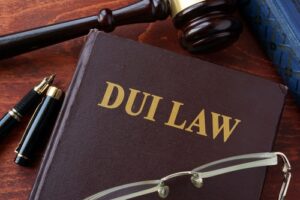Legal Definition: Restorative Justice
“Restorative Justice” is a philosophical and practical approach to the criminal justice system that emphasizes repairing the harm caused by criminal behavior and focusing on the needs of victims, offenders, and communities. It is an alternative to traditional punitive models of justice and seeks to promote accountability, healing, and reconciliation in the aftermath of a crime or wrongdoing.
Key aspects and components of restorative justice include:
- Healing and Accountability: Restorative justice places a strong emphasis on addressing the emotional and material harm experienced by victims and communities while holding offenders accountable for their actions.
- Dialog and Communication: It encourages open and facilitated communication between victims and offenders, allowing them to share their perspectives, express their needs, and work towards resolution.
- Community Involvement: Restorative justice involves the community in the process of responding to crime and wrongdoing, recognizing that communities play a crucial role in both preventing and repairing harm.
- Alternative Responses: It offers alternatives to traditional criminal justice processes, such as diversion programs, victim-offender conferences, and circles, which aim to repair harm, reduce recidivism, and promote reintegration.
The primary goals and purposes of restorative justice include:
- Victim Healing and Empowerment: Restorative justice seeks to empower victims by giving them a voice in the process, acknowledging their pain, and facilitating their healing.
- Offender Accountability and Rehabilitation: It encourages offenders to take responsibility for their actions, make amends to those they have harmed, and engage in rehabilitation efforts to reduce the likelihood of reoffending.
- Community Reintegration: Restorative justice aims to reintegrate offenders into the community in a way that promotes prosocial behavior and prevents future criminal conduct.
- Conflict Resolution: It provides a platform for resolving conflicts and repairing relationships, reducing the potential for further harm or violence.
Restorative justice practices can take various forms, including victim-offender mediation, family group conferences, and restorative circles. These processes typically involve a trained facilitator who guides participants through structured dialogues aimed at understanding the harm caused, addressing the needs of all parties, and developing a plan for restitution or reconciliation.
It’s important to note that restorative justice is not a one-size-fits-all approach and may not be suitable for all cases or all individuals involved. It is often used in conjunction with traditional criminal justice processes and requires the voluntary participation of victims and offenders.
Restorative justice has gained recognition and acceptance in many jurisdictions as a valuable tool for addressing certain types of offenses, particularly non-violent and property crimes. It aligns with principles of fairness, inclusivity, and empathy, focusing on human needs and relationships rather than solely on punishment.
In conclusion, “Restorative Justice” is an alternative approach to the criminal justice system that emphasizes repairing harm, promoting accountability, and focusing on the needs of victims, offenders, and communities. It seeks to empower victims, hold offenders accountable, reintegrate individuals into society, and facilitate conflict resolution and healing. Restorative justice practices take various forms and complement traditional criminal justice processes, recognizing that the response to crime should consider the unique circumstances and needs of those involved.





